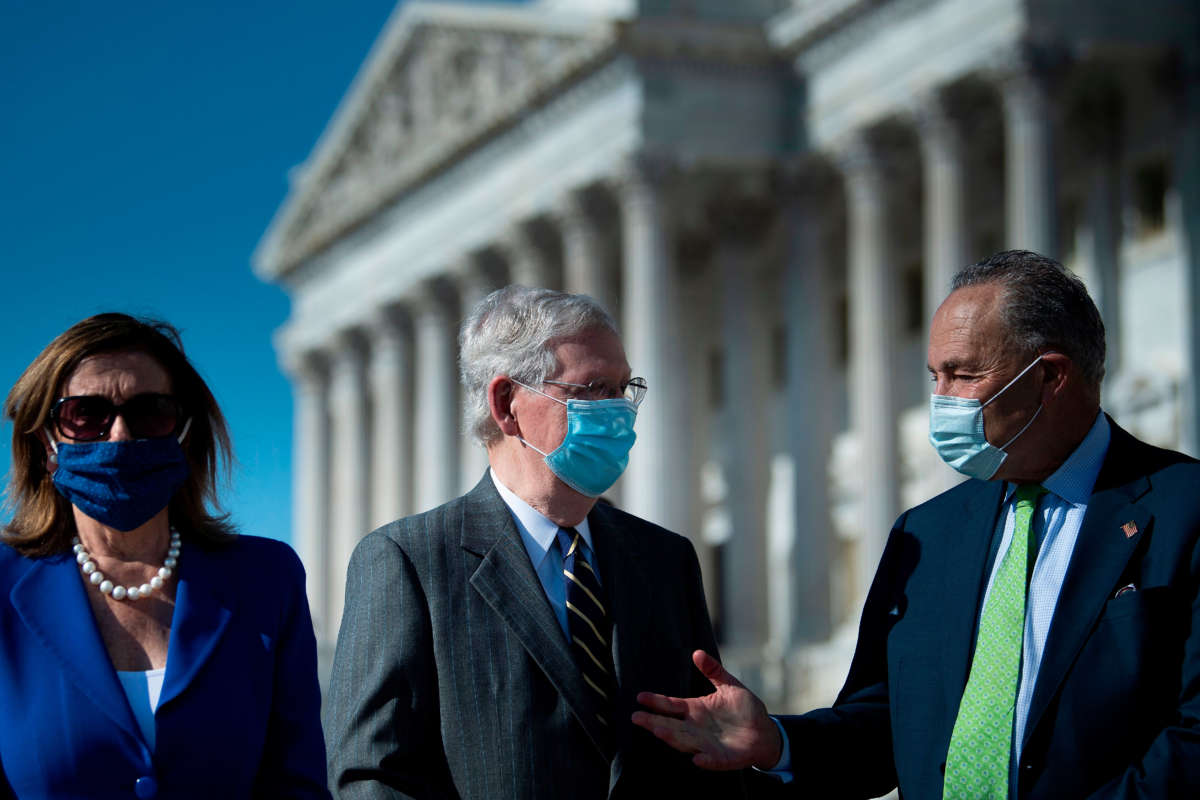The 2020 election, like the 2016 presidential race, was supposed to be a landslide victory for Democrats. Instead, Democrats lost a net dozen House seats and barely eked out victories in Congress and the White House, and a new analysis that’s been circulating around Democratic strategists, per The Washington Post, may explain why.
A report seen by Truthout by Way to Win on 2020 election strategies for both major parties found that Democrats focused largely on positive ads mentioning GOP members and touting a willingness to work across the aisle. Meanwhile, Republicans focused on attacking Democrats and painting them as extreme. The GOP gained a net 10 seats in the House and performed better than expected overall.
Democrats raised and spent more than Republicans overall, spending six times more than the GOP on positive ads that mentioned the Republicans and three and a half times more on ads about bipartisanship, according to the analysis. They also failed, Way to Win wrote, to talk about issues of concern to voters, like jobs and the economy.
Meanwhile, the GOP spent 10 times more than the Democrats on painting the opposing party as “radical” and “extremist.” Half of all of conservatives’ ads were based on rhetoric, using words like “AOC,” “socialism,” “defund” and “extreme” to describe Democrats, according to the analysis.
The problem isn’t necessarily that voters dislike the left’s ideas. “The analysis suggests that at least part of the problem — in 2020, anyway — was that Democrats failed to rebut those attacks head-on or to effectively make the case that the GOP is genuinely captured by its extremist elements in a way the Democratic Party simply is not,” wrote The Washington Post’s Greg Sargent.
This disparate messaging from the two major parties caused an unintended effect: Democrats ended up legitimizing the Republicans’ attacks on them because they were so insistent on bipartisanship. And, in so doing, Democrats lost a major opportunity to capitalize on the widespread disapproval of then-President Donald Trump, Way to Win concluded.
Early analyses of 2022 and beyond show dimming chances for Democrats to keep hold of the House. Way to Win says that Democrats need to reevaluate their strategies now in order to preempt losses and focus on talking about the extremism of the right.
“We should be painting them as the extreme outlier that they are,” Jenifer Fernandez Ancona, Way to Win vice president, told the Post.
Indeed, Republican state legislators have spent this year filing hundreds of extreme bills aimed at things like suppressing votes or attacking trans rights.
Progressives and some Democrats have grown increasingly frustrated with the Democratic establishment’s obsession with the illusion of bipartisanship with a party seemingly dead set on dismantling democracy. People like Sen. Bernie Sanders (I-Vermont) have warned that, the longer Democrats drag out talks on things like the recent infrastructure bill, the more chance that the party will lose seats in 2022 and beyond.
Republicans, meanwhile, have completely rejected bipartisanship. Their stated goal is to obstruct Democrats at all costs.
Join us in defending the truth before it’s too late
The future of independent journalism is uncertain, and the consequences of losing it are too grave to ignore. To ensure Truthout remains safe, strong, and free, we need to raise $34,000 in the next 72 hours. Every dollar raised goes directly toward the costs of producing news you can trust.
Please give what you can — because by supporting us with a tax-deductible donation, you’re not just preserving a source of news, you’re helping to safeguard what’s left of our democracy.
